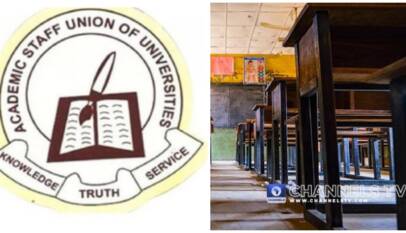President Bola Ahmed Tinubu has approved a new policy that makes compliance with the National Education Repository and Databank (NERD) a compulsory requirement for participation in the National Youth Service Corps (NYSC) or the issuance of exemption letters.
The directive, which takes effect from October 6, 2025, was announced in a circular issued on Sunday by the Secretary to the Government of the Federation, Senator George Akume.
According to the circular, all Nigerian graduates—whether from local universities, polytechnics, colleges of education, or foreign institutions—must show proof of uploading their final-year academic works, including projects, theses, or dissertations, to the NERD platform before they can be mobilised for NYSC.
The policy, however, will not affect Corps members already serving or those enrolled before the enforcement date.
NERD, a national digital database launched by the Federal Government in March 2025, was created to store and manage academic works of Nigerian students and researchers. It is designed to serve as a proof of study, a quality assurance mechanism, and a verifiable record of scholarship.
Quoting from the circular, Akume said the repository would act as “a yearly independent proof of continuous academic enrolment and affiliation, expected to inviolably time-stamp scholarship, academic activities, and footprint regardless of location.”
Minister of Education, Dr. Tunji Alausa, who formally declared the NERD Policy effective in March, stressed that its stipulations are now obligatory across all institutions of learning, irrespective of ownership or supervision, including colleges of nursing, agriculture, and specialised research centres.
In addition to enhancing academic quality, President Tinubu also approved a monetisation and reward mechanism under which students and lecturers can earn lifetime royalties from works deposited in the repository. Institutions are equally encouraged to create local repositories linked to the national database.
The circular further directed agencies such as the National Identity Management Commission (NIMC) to provide inter-agency data exchange support through Application Programming Interfaces (APIs) to enable seamless verification of student and institutional records.
NERD spokesperson, Haula Galadima, explained that each submission must carry the names of the student, supervisor, co-supervisor (if any), Head of Department, and sponsoring institution. She added that the initiative would not only verify authenticity but also improve academic standards across the country.
“If lecturers are aware their names will appear alongside students’ work on a globally accessible platform, there is the likelihood that each lecturer would up his or her standard. Very few lecturers would want their names associated with poorly produced academic works,” Galadima said.
She also confirmed that onboarding for Ministries, Departments, Agencies, higher institutions, and corporate organisations has commenced.


































